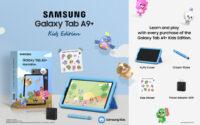PLDT, Smart pilot enhanced UNICEF assessment tool
PLDT and its wireless unit Smart Communications Inc. (Smart), are set to pilot UNICEF’s updated tool, advancing children’s welfare in the conduct of its business operations.
As part of shared goals to keep children safe online as abuse and exploitation proliferate in the pandemic, PLDT and Smart deepen their collaboration with UNICEF, becoming pioneers in Southeast Asia to adopt UNICEF’s updated tool.
The Mobile Operators Child Rights Impact Self-Assessment (MO-CRIA) tool enables mobile operators to fully understand the challenges, opportunities and child rights impact related to their industry and their operations, and how to mitigate potential negative impact. It is designed to strengthen corporate practices, policies and processes, with the goal of making it possible for children globally to safely explore and enjoy the best of what the information and communication technology industry has to offer.
“The MO-CRIA guided us in identifying our impact to children across disciplines — noting potential risks, and also opportunities to create more value,” said Cathy Yap-Yang, FVP and Group Head of Corporate Communications at PLDT and Smart, at the recent virtual launch of UNICEF’s updated MO-CRIA tool in Geneva and Bangkok. “It gave us valuable insight on the need to take further comprehensive measures for our broad stakeholder segments, towards a more focused approach to address specific needs of children,” she added.
As the Philippines’ largest and fully integrated telco firm, PLDT and Smart stand well-positioned to work with UNICEF and offer real-world experiences using the updated assessment tool. With the internet fostering global citizenship, their participation in the program is seen to impact and benefit children not only in the Philippines but all over the world.
“Children comprise 35% of the world’s population, so their rights are integrally part of comprehensive approaches to sustainability in responsible and purposeful business. If you don’t ask the right questions, one doesn’t ever really find out the right answers. If one doesn’t investigate their impact on children, one will never know what that impact actually is. And that is a vulnerable place for any business to be in the contemporary world,” said Andrew Mawson, Chief of Child Rights and Business at UNICEF.
Prior to piloting the new MO-CRIA, PLDT and Smart have been engaging UNICEF in advancing children’s welfare. Recently they renewed their commitment in a Memorandum of Understanding (MOU) to work with UNICEF to protect children and advance their rights.
Since the signing of the initial MOU in January 2018, PLDT has become the first Philippine company to integrate child rights into its business. Officials from PLDT and Smart have undergone training and consultations with UNICEF that provided baseline understanding and relevant framework for the rollout of child rights-based business policies in the context of the workplace, the marketplace, and the community. With this blueprint in place, PLDT and Smart are now fortifying their commitment to champion the welfare of Filipino children as key to long-term viability and sustainability.
Separately, PLDT and Smart lead in the fight against online sexual abuse and exploitation of children (OSAEC), a phenomenon that has proliferated alongside the prolonged lockdowns. To boost their arsenal against OSEAC, PLDT and Smart have formalized their membership into the UK-based Internet Watch Foundation (IWF), turning PLDT and Smart into Philippine pioneers in the global fight against online child abuse, and counting as allies some of the world’s largest tech giants like Amazon, Apple, Microsoft, Facebook, Google, Telefonica, and Vodafone. The IWF membership now gives PLDT and Smart broader surveillance powers, as they secure access to thousands of sites identified by IWF as harmful to children.
On top of the IWF membership, PLDT and Smart have been blocking illegal sites through open-source threat intelligence gathering, purchasing available commercial threat intelligence and receiving information from the government through law enforcement agencies. So far, the company’s Cyber Security Operations Group has blocked more than 3,000 domains linked to OSAEC. PLDT and Smart are also rolling out a child protection platform that automatically cuts access to child abuse materials.
“Children are key citizens of the digital world. And we recognize that we are at a unique position to make a noble difference, keeping in mind the timeless guidance of the late former U.S. Secretary General Kofi Annan when he said that there is no trust more sacred than the one the world holds with children,” said Yap-Yang.
PLDT and Smart have been consistently advocating for children’s welfare working with both local and global strategic partners to further clamp down on cross border crimes involving children. As future stakeholders and nation-builders, children have always been at the heart of the two companies. PLDT and Smart have teamed up with the SaferKIdsPH consortium of the UNICEF, the Australian embassy, Safe the Children Philippines, and The Asia Foundation to stop the abuse of children.
By piloting the updated version of the MO-CRIA, PLDT and Smart strengthen their support to the United Nations Sustainable Development Goal (UNSDG) #11 on making human settlements inclusive, safe, resilient and sustainable. The engagement also underscores PLDT and Smart’s commitment to UNSDG #16 on promoting peaceful and inclusive societies for sustainable development, providing access to justice for all and building effective, accountable and inclusive institutions at all levels.


